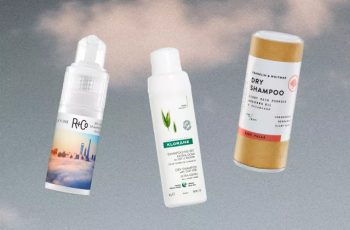Do face masks expire? How long do face masks last?
It is often believed that a comfortable night of soothing self-care always requires a face mask. Known as a popular step in Korea’s luxurious ten-step skincare routine, face masks have become part of our daily lives, and I bet that as you read this, you are imagining a bathroom drawer full of various face masks to apply.
The question that comes to my mind is: Do face masks expire? How long do face masks last? Let’s get started and learn more.
Do face masks expire if they are not opened?
Yes, face masks expire. They should have an expiration date on their packaging. I say “should” because some brands choose not to do this, but they definitely should.
In fact, the lifespan of an average face mask is quite long, usually between one and three years. So unless it is stored in the back of a cupboard for a long time, it should not be a problem.
How long do Korean face masks last?
The important thing to remember is that many Korean face masks (because most of these products are made and used in Korea) have a production date. This is the date they were made. So don’t panic if you see a date from a long time ago. The first problem you need to solve (if you can’t read Korean) is to understand the difference between the expiration date and the manufacturing date and the “use by” date symbol, because all three can exist.
Why do Korean companies choose the manufacturing date? Well, when they work with brands, they want to show that the product is freshly made. For example, a product may not expire in ten years, but the store or company may think that a 2-year expiration date is not a big problem until they realize that the product has been sitting for 8 years. Therefore, the manufacturing date shows that the product is fresh and brand new, which usually also means that the product and packaging may be less damaged.
Is it safe to use expired masks?
Yes, it is considered safe to use expired masks, but only if you triple check that they will not irritate the skin. You can better assess whether the mask is safe to use by checking whether the mask has a bad smell and whether its consistency looks normal.
Another aspect to consider is that regardless of the expiration date, the product will start to oxidize once it is opened, so the life span is significantly shortened. Masks should be used once. However, if you decide to save some for next use, you should place the excess serum in an airtight container. Airtightness is essential so that oxygen does not get into the mixture. Not only are you exposing yourself to oxygen, but you could also be gathering bacteria, which is the last thing you want to put on your face. So be careful when storing such products that have been opened.
If your mask is about to expire, it’s not a bad thing, it just means it’s time to do a thorough detox and spend some time with a mask on your face. Your skin will be very grateful!
Here you can learn more about face masks. Hopefully, you now have a better understanding of how they work and what to do when they expire. Don’t forget that you can find more skincare tips on our Instagram page. Follow us.
DQH Can I use salicylic acid first and then vitamin C?
It’s easy to create a skincare routine, but knowing how to use it is another thing entirely. In most cases, if you’re not getting the desired skin results, it could be due to the layering of conflicting ingredients. So, is it possible that salicylic acid and vitamin C are such ingredients? Or are these active ingredients the duo that’s been missing from your skincare routine? If you want answers, stick around because today we are going to explain the benefits of salicylic acid and vitamin C and how they can be used in your daily life.
What are the benefits of salicylic acid for skin?
Salicylic acid is one of the most commonly used beta hydroxy acids and is favored by many people with oily, acne-prone skin. This acid is derived from willow bark, and unlike its water-soluble relatives (called alpha-hydroxy acids), salicylic acid is oil-soluble, which means it can penetrate deeper into the lower layers of the skin. Once it reaches the lower layers, it can help unclog pores of excess sebum, dirt, bacteria, debris, and impurities. This results in clearer skin tones and greater definition.
Not only does salicylic acid benefit the underlying layers, but the outer surface of the skin benefits as well. When applied to the skin, salicylic acid removes the buildup of dead skin cells. This is accomplished by breaking the bonds that hold dead cells to the surface. Over time, this can cause the complexion to look dull and prone to acne, blackheads, and other blemishes.
If you’d like to learn more about salicylic acid and how it can improve your skin, check out this dedicated blog post from a beauty insider.
What are the benefits of vitamin C for skin?
Vitamin C is considered one of the most powerful antioxidants, which means it is very effective at fighting free radicals and preventing them from causing further skin damage. Examples of free radicals include pollution, central heating, UV rays and harsh climate. They attack proteins, fats and cell membranes as soon as they come into contact with the skin, causing signs of premature aging such as fine lines and wrinkles as well as hyperpigmentation, flaky patches of skin and loss of elasticity.
Many people usually prefer to use vitamin C in their morning routine as this ingredient gives the complexion a radiant glow. You’ll also find that vitamin C can target areas of hyperpigmentation, plumping the skin and reducing the appearance of fine lines and wrinkles.
The thing about vitamin C is that there are a lot of outdated studies going back to the 1950s that describe vitamin C as an unstable skin component. Thanks to improvements in modern technology, this is no longer the case as all products now contain a stable form of vitamin C.
Visit The Beauty Insider to learn more about vitamin C. So please check out our blog post.
Can I use salicylic acid first and then vitamin C?
Yes, you absolutely can. In fact, it’s thought that using salicylic acid before using vitamin C ensures it penetrates faster and works faster.
This is an efficient way to utilize two power sources, and the reason has to do with pH. For example, the skin’s natural pH is about 4.7, making it slightly acidic. Salicylic acid and vitamin C are also both acidic, and you’ll find that vitamin C is absorbed quickly into the skin. Therefore, using salicylic acid beforehand can increase the acidity of the skin and allow vitamin C to penetrate into the skin faster.
While this is considered an effective way to combine two powerful ingredients, you need to be aware of your skin type and how it reacts to certain active ingredients. Even people with perfect, normal skin can experience skin sensitivity and irritation. Therefore, always consult a doctor or dermatologist before using any new products on your skin.
It’s also important to follow skin application rules. In this case, you need to use the product correctly to ensure you get the best results for your skin. If you’re not sure what I mean, the basic rule for skin is to start with the thinnest consistency and work your way up to the thickest consistency. This prevents a barrier from forming on the surface, preventing other active ingredients from penetrating the skin.
Can I use salicylic acid at night and vitamin C in the morning?
Yes, absolutely, this is considered the most effective way to get returns without any adverse side effects. This is because there is enough time between applications to ensure that the skin’s pH levels return to balance.
You’ll also find that Vitamin C is rich in antioxidants and is perfect for use in the morning to ensure your skin is protected and looking its healthiest. Due to the small size of salicylic acid molecules, it is an acid that is able to reach the deepest parts of the skin. While this is effective at keeping skin clear, it also increases the risk of irritation and photosensitivity. Therefore, many people prefer to use powerful BHAs in their evening routine without exposure to UV rays, pollution, or harsh weather.
Warning: If you avoid using sunscreen every day, none of these ingredients will do what your skin needs. The combination of chemical peels and powerful ingredients increases the risk of further damage to the skin’s surface. Use SPF 50 every day to keep your skin protected and your lipid barrier healthy, even on cloudy days, keeping your skin in top condition.



